
The Business of Fashion
Agenda-setting intelligence, analysis and advice for the global fashion community.

Agenda-setting intelligence, analysis and advice for the global fashion community.
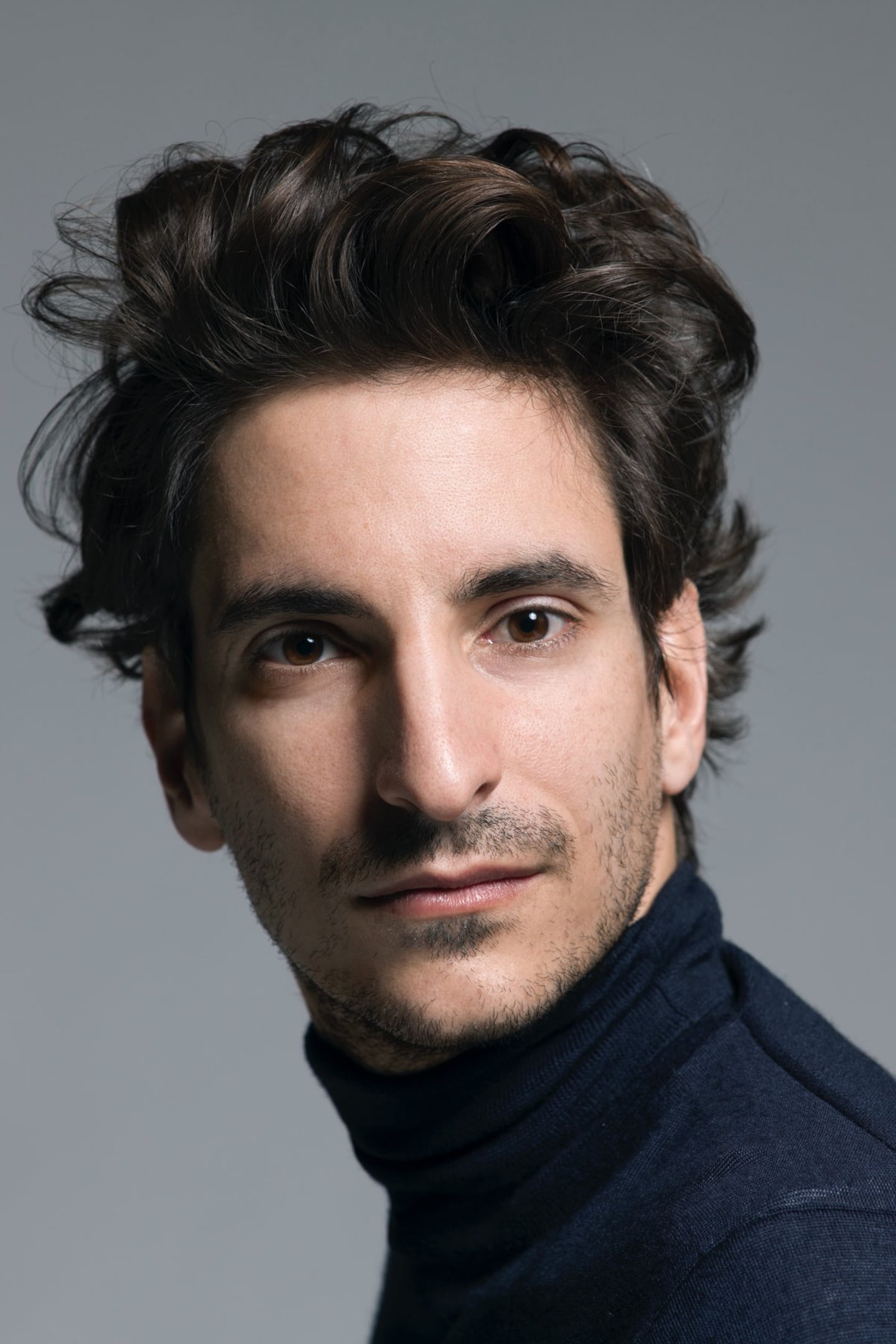
MILAN, Italy — When former rally car driver Lorenzo Bertelli, the son of Prada Group Co-Chief Executives Miuccia Prada and Patrizio Bertelli, joined the family business to lead marketing and communications in September 2017, he assumed what many industry observers saw as pole position to lead Prada when his parents one day step away from the company that, together, they turned from a staid Italian leather goods house into one of the world's most desirable luxury brands.
The Prada Group, which owns Miu Miu, Church's and Car Shoe in addition to its flagship Prada brand, has been buffeted by the coronavirus crisis like the rest of the luxury sector, which is expected to contract by up to 39 percent this year, according to BoF and McKinsey's State of Fashion 2020 Coronavirus Update. In March, the company's stock price sank to a new all-time low, as stores around the world were forced closed and sales stalled. But even before Covid-19, the company was lagging its peers, suffering from high wholesale exposure and a weak digital strategy.
Until now, Lorenzo has kept a low-profile, working mostly behind the scenes as head of marketing and communications. But today, in his first major interview, the 32-year-old self-described computer nerd who was appointed to the Prada Group board of directors in June 2018, shares details of his life pre-Prada and lays out his vision for the future of the family firm as it works on a turnaround amid the coronavirus crisis, aims to catch up with a digital revolution in fashion that has only been accelerated by months of lockdowns and takes the first steps to becoming a more diverse and inclusive company.
Imran Amed: What was it like growing up the son of the legendary fashion designer, Miuccia Prada and her equally legendary husband, Patrizio Bertelli? Do you remember when you first understood what it was that your family did and how big of a deal it is in the fashion world?
ADVERTISEMENT
Lorenzo Bertelli: They were just my parents. I'm born in 1988. Let's say, I grew up with the company while it was growing up, you know. So maybe if I were born now, or 10 years ago, it would be different, but because Prada was successfully built in the '90s, it's been a parallel process, I would say.
Having grown up in the fashion world, you didn't choose to join the family business at first. I was watching some of the YouTube videos of your rally car driving. How did you get into that?
This is a part of my life that is closed now, but at the moment, it was the most relevant part of my life because I learned so much in that period. I always liked, since I was young, motorbikes, cars, engines — and adrenaline. I started racing just for fun. And so I did another one, and then it was not so bad, so another one, another one, and after one year, I almost stopped but my father said to me, "You have to try, seriously at least once, to understand how it is to be completely committed to one objective and one direction."
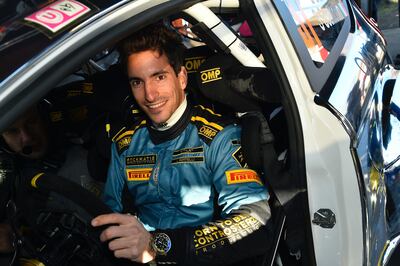
Lorenzo Bertelli competing in the Monte Carlo Rally in 2016 | Source: Getty Images
You've now gone from high-speed racing to high fashion. Clearly you have this family connection, but I'm sure it was still a really big decision for you. What made you decide to leave your passion and join the family business where you didn’t really have much experience?
So what has it been like?
What has been the biggest challenge for you, Lorenzo, coming from outside the industry?
<strong>The most challenging thing has been for me to prove to people inside that I'm able to do the task that was asked of me.</strong>
Another point has been diplomacy, you know, because you are not the boss of the company, but at the same time you want to understand what is happening within the company. So you have to have that right dose of diplomacy to understand everything that happens within the company and be open enough to let people talk about some topics with you and not say too much to my parents because you have to keep some secrets. So, I think diplomacy has been something that I had to learn and I hope has helped me to be appreciated inside the company.
ADVERTISEMENT
Tell me a little bit about your role. Coming into the business, I'm sure one of the conversations you had with your parents was, well, "What am I going to be responsible for?"
Yes. When I joined the company, there were two main areas where I could join. One was in retail and one was more marketing-focused. But communication has been hit hardest from the digital revolution of the sector. And since I was very young, I've always been a kind of nerd with computers and things like that. So in the end, we said, "Okay, maybe that area is where there is more clear sky." So we decided, with my father and mother, to focus on digital communication because the role was clear and there was nobody in that role.
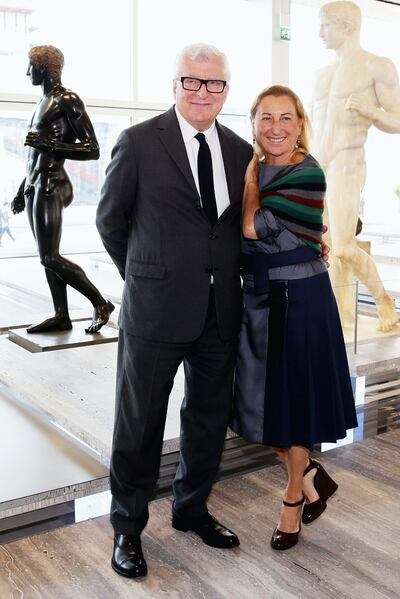
Patrizio Bertelli and Miuccia Prada | Source: Getty Images
I took the role and after a few months, I said, this is not about just digital communication, it's about communication. Personally, I hate the word digital, you know, because I always say it's not another cake, it's the same cake that must be divided into more slices. There is digital, print and so on. So I said, "Guys, this is communications, not digital. We have to put everything together and create a 360 approach to communications. It's not about a single pillar. It's about the connection between different pillars: communication, CRM [Customer Relationship Management], the customer, the product, the marketing strategy, a lot of things."
In the end, we decided the best thing to do was to create a big team that now is marketing and I'm in charge of it, where we have communication, which is in part dedicated to the customer, so CRM and omnichannel, and also dedicated to product insight marketing. In our company, we don't have completely vertical pillars for every brand.
You recently took on this additional role in Corporate Social Responsibility — or CSR. In some places, this is seen as an old-fashioned way of thinking because CSR is integrated into everything that we do as business people now, right? It's not just a little department on the side.
Yeah, I completely agree one hundred percent, because CSR touches on everything from marketing to communications to the customer to supply chain to the product. It's so wide that I always say the first CSR person of a company should be the person in charge of the whole company. In order to give real relevance to the sustainability aspect, we decided to put me in charge exactly because of what you're saying. So I'm in charge of the marketing, but because of my role, I have, for sure, a bigger relevance on that topic. Then I can apply the right notes everywhere in the company to make sure it works in a smooth and straight direction. CSR alone is nothing. You have to really work in vectors with a lot of departments.
So what are the areas that you've identified in that role as being a focus? As you know, there are so many challenges in the whole fashion supply chain that need to be addressed, around environmental impact, around impact on people, around diversity and inclusion. There are all of these different topics that kind of come together and you can't do everything at once. Where have you focused your energy?
ADVERTISEMENT
So how do you do that? How do you find out what's going on in the market?
So these areas where you've taken the lead around communications, with an emphasis on digital, and CSR, how do you take those kinds of more modern topics for business back to your parents who've run the business in a completely different way? I mean, your mother is one of the best communicators there is in fashion, but digital is probably not something that comes to her as naturally.
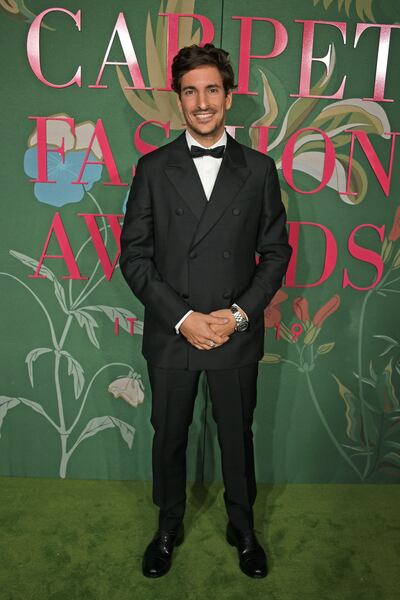
Lorenzo Bertelli at The Green Carpet Fashion Awards | Source: Getty Images
On the sustainability side, which is a relatively new topic for our industry, it's something that I think people have really started taking seriously in the past few years. How do you convey that critical topic back to your parents?
Both my parents, they've always had a kind of renaissance mindset.
When you say a marketing need, is that because customers are asking for it?
Let's talk about that nylon project because that was one of the most interesting moves that Prada has made recently. It did two things at once. It managed to go back to the archive of what Prada first became famous for —those black nylon bags from the 1990s — but the company did so by using a completely new material, which is much more sustainable.
It sounds a little bit like your role is connecting the dots of different parts of the business — including with the two people who are in charge — and making them aware of opportunities that maybe they didn't see themselves.
Okay, Lorenzo, you know, if we were doing this interview three months ago, I might have ended the interview there. The last time I saw you was the Sunday of Milan Fashion Week when Prada announced that Raf Simons was joining as co-creative director. The industry was speculating about it for quite some time.
They're both such strong-minded creative people, though. And the question I asked at the press conference that day was, how are they going to make decisions if they don't agree?
But of course, since that Sunday of the press conference, the world has completely changed. I want to get your perspective on how this crisis has impacted Prada, how it's impacted you personally and how as a new leader in this company you have played a part in helping the company navigate this really very, very unusual unexpected situation.
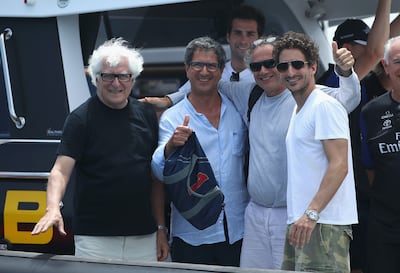
Patrizio Bertelli, Agostino Randazzo, Matteo Plazzi, Lorenzo Bertelli | Source: Getty Images
Let's talk concretely about the operational impact of the virus. As a big retail company, obviously, Prada has to navigate the kind of new rules at retail, with social distancing and different protection measures in place. But Prada also owns factories in Italy that had to be shut down. And I know you re-purposed some of those factories at some point to create protective equipment. How have you been navigating this as a company, both on the retail side and the manufacturing side?
The biggest impact has been for us the fact that for a couple of months we were not able to produce anything, but also there was the need to help Tuscany and the people around us and we said, "Okay, let's produce some protective equipment for the Tuscany region." And so, we started to do it that. I'm not involved in the supply chain, but the biggest problem has been the logistics, to organise the checks of every single employee and to make the protocols and procedures to apply those rules.
I also wanted to touch on another really important topic. Last year, Prada found itself in a difficult position with regards to this keychain that was deemed by many people to be representative of blackface which some people found extremely offensive. I know that the Prada Group has taken some actions, for example, setting up a diversity and inclusion council. All of that seems to have laid a path for the situation the fashion industry is in now, with the Black Lives Matter movement that has erupted in the wake of several killings of unarmed Black men in the United States. How are you, as an Italian group with a global operation, thinking about your role dismantling some of the systemic and structural issues of racism in society, within fashion more broadly and at Prada specifically?
<strong>The biggest problem is that these kinds of problems keep happening. We never seem to learn from history.</strong>
Definitely it starts with self-education and understanding history. But I wonder, specifically, with the diversity and inclusion council, I’m curious how you have engaged with this group while all of this has been happening. Everybody has created these councils, but it’s not entirely clear exactly how people actually work with their councils during a time like this.
Is this a topic that your mother and father are engaged with? There are obviously generational differences at play here which we were talking about earlier, so how is that self-education that clearly you and others at Prada have been part of being extended to your family?
Diversity must also start from within. As an industry, when it comes to recruiting, we have also tended to hire people from within our own circles. Aren’t there are a lot of skilled Black people out there who are simply not being given a chance?
Finally, I did want to ask you about succession planning at Prada and the future of the company, because as soon as you were appointed, your father said, "Lorenzo is getting ready to become one day — if he wants to — the head of Prada." Is that something you think you want?
This interview has been edited and condensed for clarity.
Related Articles:
[ The Path to a Better PradaOpens in new window ]
[ Raf Simons Is Joining Prada. What Does It Mean for the Italian Megabrand?Opens in new window ]
[ Alexandre Arnault, LVMH’s Digital ScionOpens in new window ]
The Coach owner’s results will provide another opportunity to stick up for its acquisition of rival Capri. And the Met Gala will do its best to ignore the TikTok ban and labour strife at Conde Nast.
The former CFDA president sat down with BoF founder and editor-in-chief Imran Amed to discuss his remarkable life and career and how big business has changed the fashion industry.
Luxury brands need a broader pricing architecture that delivers meaningful value for all customers, writes Imran Amed.
Brands from Valentino to Prada and start-ups like Pulco Studios are vying to cash in on the racket sport’s aspirational aesthetic and affluent fanbase.